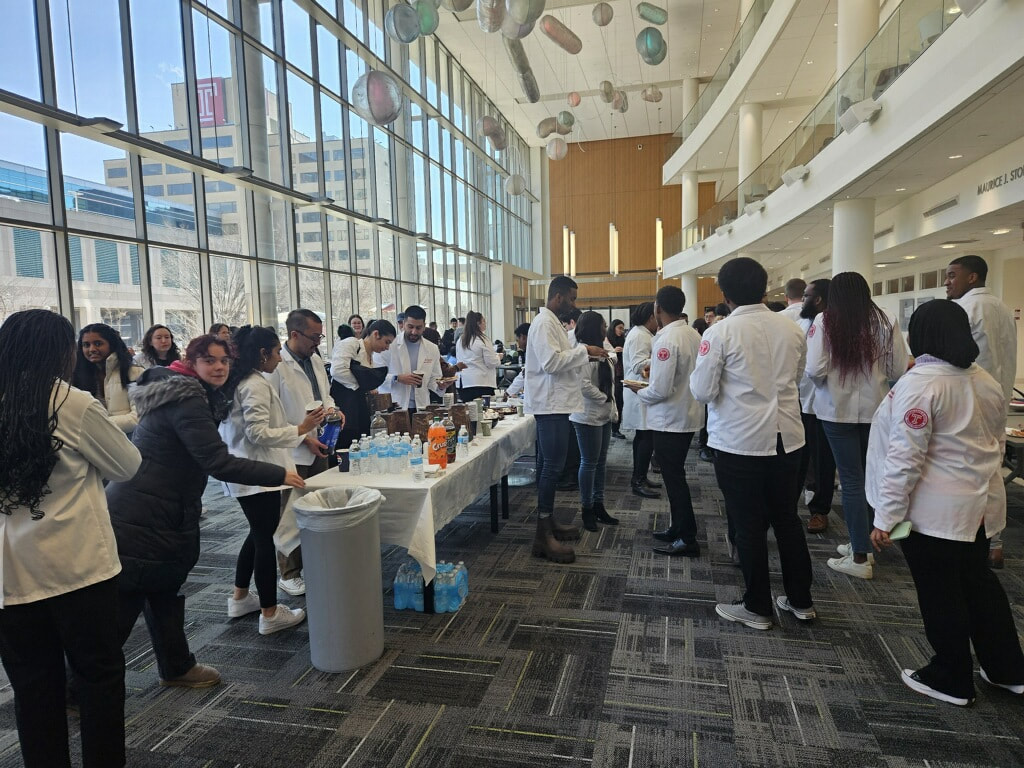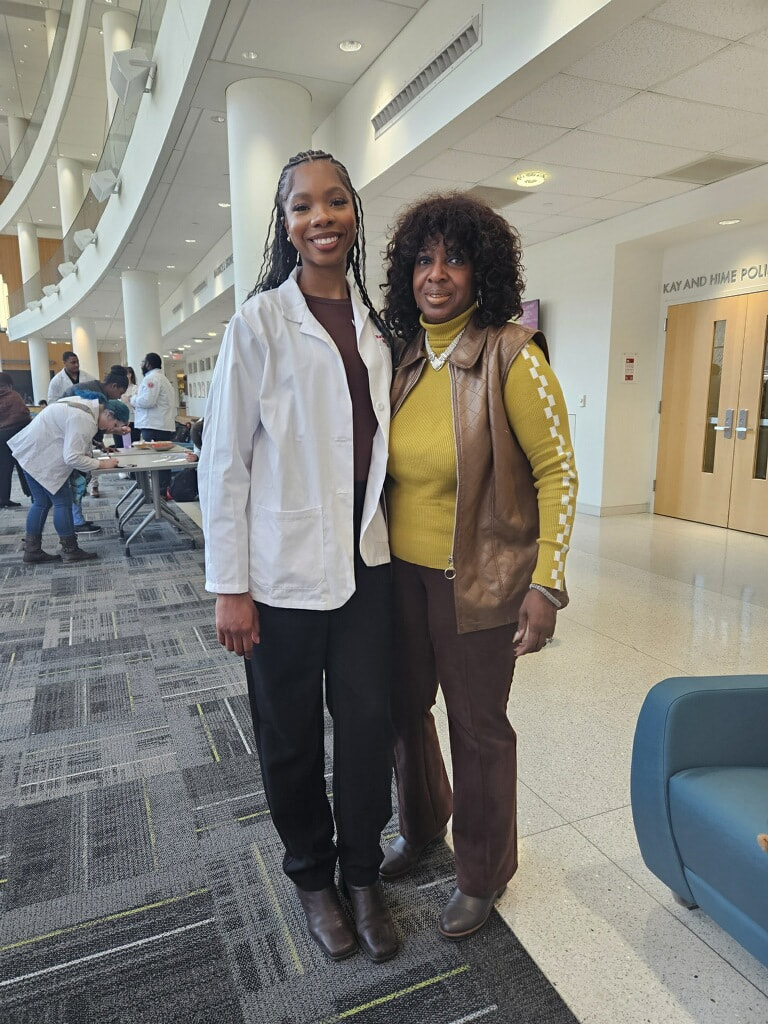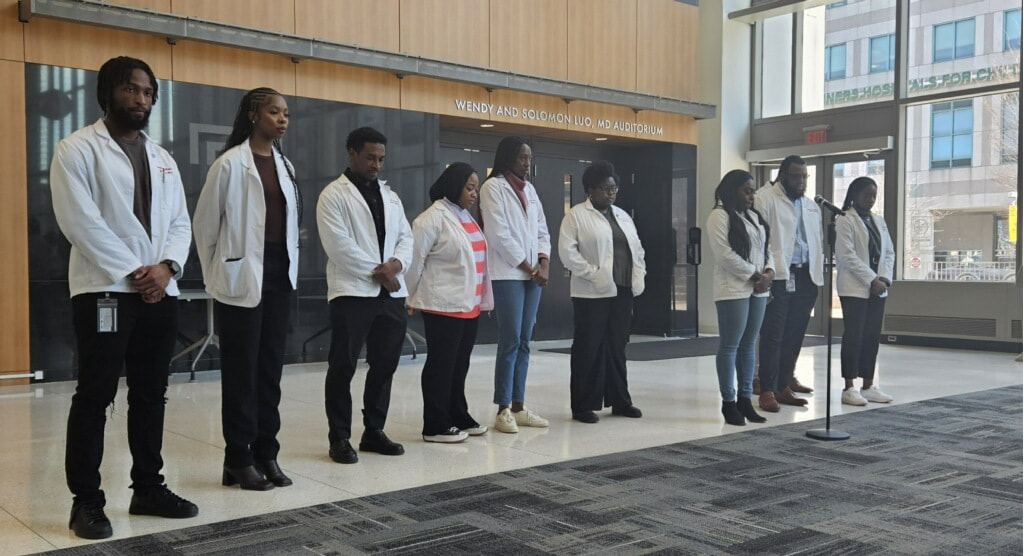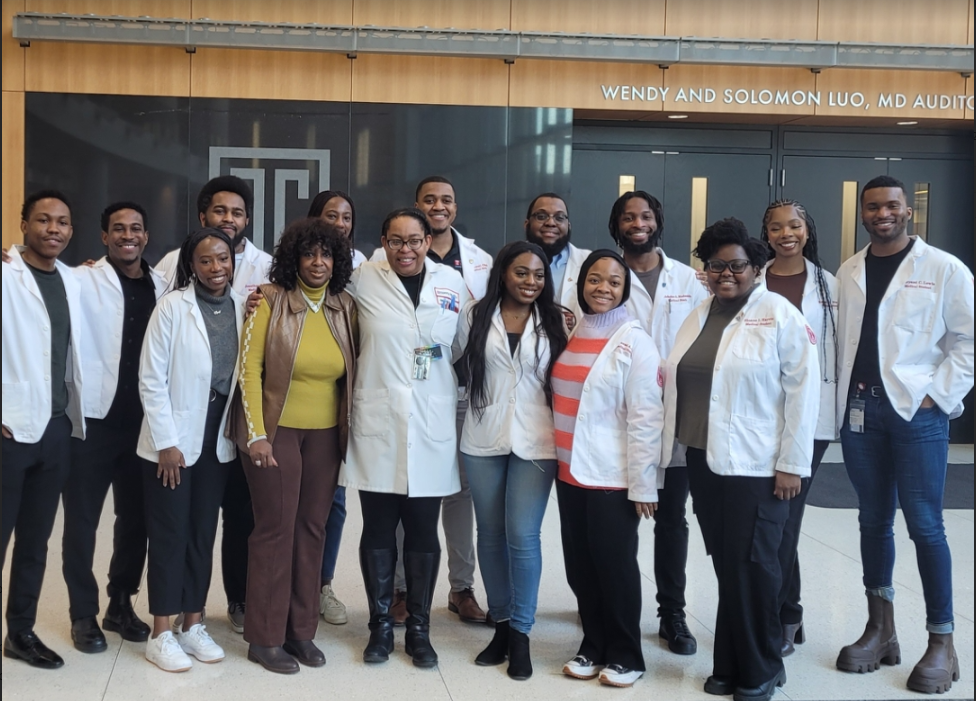|
To close out Black History Month, Called to Serve's Amelia Price delivered a speech to the Temple University Lewis Katz School of Medicine's "White Coats for Black Lives" event. She had the following to say: Good morning and thank you for this invitation.
I consider this an honor to be your guest speaker for such a prestigious ceremony “White Coats For Black Lives” to close out Black History month. As I stand before you, I see a beautiful sea of doctors in white jackets. I remember when I first starting interviewing as a community interviewer three years ago. About three months in to interviewing, I interviewed a medical professional who I will NEVER forget. I asked questions and each time, I could not believe what I was hearing. My final question to him was “What does it mean to you to have bedside manners in the health field especially in a marginalized community?” He replied, “Statistically minorities exaggerate their pain more than others. Most of the patients he did not believe they were in severe pain. He had a routine; when he entered a patient’s room, he would sit with his back to them and would not say anything to them for the first couple of minutes. If the patient is really in pain they will say something to me.” I was so stunned and disgusted with what he said. I noticed the facial reaction of the two other students who I was interviewing, they were appalled. Every question I asked him, he was insensitive. I was so shocked, that after my interviews were over, I asked the admissions staff, was that a mock interview I had just done. I could not believe a medical professional who had over ten years under his belt, could be so arrogant, bias and racist. It is one thing to hear unprofessional health stories, it is another thing to experience it ‘first hand’; Systemic Unethical Health behavior. On a day my family and I would normally be celebrating my son’s birthday, I woke up in excruciating pain three o’clock in the morning. I texted a doctor and explained what I was going through. They replied back immediately. “I will contact one of my colleagues and see if they can get you in”. An hour later, I received a call, they were able to get me an appointment for 8 AM. They asked me to text them my insurance information, DOB, address etc. The doctor did all the leg work for me. All I had to do was show up for the appointment. I arrived a half an hour ahead of time. I was greeted by the security guard who was so pleasant. She could see I was in pain. She asked me, did I have an appointment. I said, yes, 8 AM. She checked the list of patients scheduled, my name was not on the list. She extended an apology. I explained in detail how my appointment was scheduled. She advised, she would let the doctors know. Again, I was told I could not be seen. It dawned on me, pull my phone out, I had all the text messages between myself and this doctor. I showed the security guard the messages and asked her to take my phone back and show it to the doctors. She came back apologizing to me. Go figure, the security guard extends the apology, ‘not the medical staff.’ A staff member came out to speak with me, she was very short with me. She advised I had to go to another area to register and show proof of my insurance. I went to the receptionist, she advised, I had to call my insurance company and have them to call her to verify I had insurance since I was not a patient. Eventually, my name was called and I was taken back to an exam room. After seeing two doctors and enduring physical pain from each, I was advised they had scheduled me for another appointment to go to another unit. I went home streaming with tears, feelings hurt. I believe my appointment was scheduled for 1:00 pm. Again I was a half an hour early. I was the first patient there. I noticed patients coming in being seen and I was never called on. I sat a couple of hours waiting patiently. I was in so much pain, I went to the receptionist and asked, why I had not been called. “She replied, Oh Adrian, you were seen already, you can leave”. I let her know my name was not Adrian and gave her my correct name. She looks in the system, makes a call, excuses herself, goes in the back, comes back to the front desk and she tells me, “you had surgery this morning, you can go home”. I said excuse me, I did not have surgery earlier this morning. To make a long horrible story short, I went through pure hell the entire day. I guess I was one too many patients added on and I paid dearly for it. I was treated like a one and done, someone begging in a soup line. My physical pain was exacerbated to emotional and mental pain, they treated me as insignificant. Both doctors from the examination, probing and pulling made the pain ten times worst. I felt they were deliberately callous and very insensitive to the excruciating pain they inflicted. They were not culturally sensitive or compassionate. My horrible and unforgettable experience with them affirmed to me, these two doctors have truly lost sight of what it is to be mindful of patients in their care - who are most vulnerable. The ONLY PERSON who remembered my name and was so kind to me was the security guard. As I was leaving, She said, “Ms. Price are you okay”. I shook my head NO. The only holistic treatment I received was from the security guard. Mr. Solomon Jones, was the guest speaker on January 15th for Lewis Katz School of Medicine - Day of Activism. He shared his truth about a bad experience that happened to him 18 years ago. His story reminded me about my experience. Too sum it all up about Mr. Solomon Jones “Never judge a book by its cover”, “A picture of him now paints a thousand words of success and prosperity compared to 18 years ago when he was homeless and strung out on drugs.” By the way, it was a doctor that was mean spirited to him and it was two medical students who breathed life back into his spirit, just by sneaking him two cookies. The security guard was my angel of kindness. First encounters with a patient can leave a lasting impression. You have one time to get it right or get it wrong. One bad treatment from a medical professional can be very traumatizing. A patient can be very reluctant to ever follow-up with an appointment because of how they were treated, especially if they are vulnerable and do not have the fight in them. I have suffered in silence the past two years just as so many patients continue to. There are many beautiful hidden gems in marginalized communities. What is missing in the health field is more warm smiles, kind words, a helping hand, advocacy and accountability from doctors who have done a medical injustice to a patient. To me, bedside manners at its core is “respecting the humanity of your patient”. Your white jacket is supposed to represent “empathy and understanding”. Your patient should never feel intimidated by your white jacket; they should feel “THEY ARE SAFE IN YOUR HANDS”. I will sum up with the following:
I challenge you to help change the narrative of medicine; keep the holistic side of medicine at the forefront of your medical practice. Build relationships through trust. Marginalized communities will have healthier patients. I will leave you with one of the questions I ask during my interviews’ “Hypothetically, you have graduated, finished your residency, and received your medical license. You are now an independent physician working at Temple University Hospital. You happen to walk past a patient’s room and you witness one of your colleagues treating a patient from this community unjustly, What would you do?" There is a big world out there waiting for you; make your mark on medical history! Thank you!
0 Comments
Leave a Reply. |
Archives
March 2024
|




